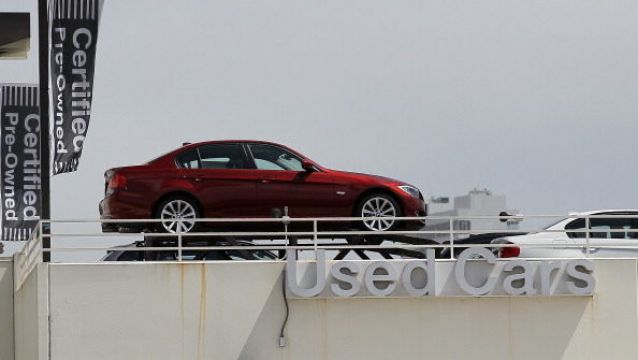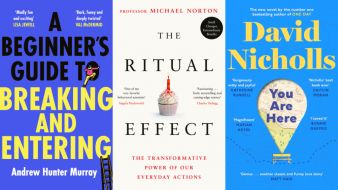I want to buy a used car.
Good for you, plenty of choice out there, have fun.
Wait! It’s the first car I’ve ever bought, so I need to know what to do. And maybe what not to do.
Relax — we’re here to help, and you’ve already made your first and most important step: you’re doing your research.
Is buying a used car a minefield?
It can be, but it doesn’t have to be. First of all, you need to set your parameters — what kind of car do you want, and what your budget is. Now is the time to be ruthless. Work out very carefully what you can afford to spend, borrow, or repay and don’t allow yourself later on to get tempted into spending more. There are plenty of cars out there, so there’s no need to spend over the odds.
How do I know which is the right car for me?
Well, there are some pretty simple rules of thumb. If you’re a learner driver, and you’re buying a first car, you need to stick to something small, with a small engine, to keep insurance quotes under control. A Toyota Yaris, a Suzuki Swift, a Nissan Micra, a VW Polo, a Ford Fiesta — that sort of thing.
If you’re an older driver, and maybe you’ve passed your test, you’ll probably want something a little bigger and more practical — maybe a VW Golf, or a Ford Focus or possibly a fashionable SUV like a Nissan Qashqai or Skoda Yeti. Whatever you need, get online and get into the newsagent and read as many reviews as you can of the cars that you’re interested in. Get a feel for their foibles and their characteristics — that kind of knowledge will pay dividends when you’re actually on the forecourt hammering out a deal.
Hammering out a deal? I was just going to click and collect…
That’s not surprising. According to used car sales website Carzone, 50 per cent of buyers would be happy to buy a car online, without test-driving it first. If you’re going to do that, you’re going to need to have done a seriously deep dive into the research beforehand, so that you can be as sure as possible that you’re buying the right car from the right dealer.
Speaking of which, should I buy from a dealer or buy privately?
It’s a case of swings and roundabouts. Buying privately means you’ll pay a little less, but of course you have no recourse if something goes wrong. While it might seem a little unfair to those who are genuinely selling a car privately in good faith, the Competition and Consumer Protection Commission (CCPC) has warned Irish drivers of the dangers of putting too much trust in the vendors of used cars.
The Commission has studied Irish car buying habits, and found that only a minority (44 per cent) “reported checking if the vehicle had been previously crashed or seriously damaged before purchasing.” More worryingly, 20 per cent said that they carried out no pre-purchase checks at all.
Grainne Griffin, Director of Communications with the CCPC said: “Buying a car is one of the most important purchases a consumer can make. Not only is it a substantial financial investment, but buying an unsafe car can have tragic consequences. Since March, we have seen an increase in the number of consumers contacting the CCPC because they have unknowingly purchased a crashed car.
"The Irish used car market has been significantly impacted in recent months by both COVID-19 and Brexit. Consumers in some cases are taking increased risks by buying cars from private, or less reputable sellers without checking the car history. Brexit has had an impact on the cost of used cars and consumers may be tempted to cut corners to get a lower price.
"We are strongly advising consumers to use our car buyer’s checklist if they are buying a used car and always independently check the vehicle history.”
While a private seller may well be entirely trustworthy and above board, the CCPC says that it has to: “remind consumers of the important differences between buying from a business compared to an individual, and that if they buy from a private seller then they do not have rights under consumer protection law, if something were to go wrong.”
Hmmm… Better to buy from a dealer, so?
Not necessarily. It’s — again — all about research and shopping carefully around. You’ll soon get a feel for who’s being honest and who’s spinning a tale.
One thing above all else though — you can pretty much ignore the year and mileage of a used car, and focus all your attention on the service history. An older, higher-miles car with a thick stack of paperwork and receipts is preferable to a younger, lower-miles car with sketchy history.
Anything else to check?
While you’re checking the car’s history with the seller, make sure you run a history and background check to see if there’s any finance still owing on the car you’re looking at.
While a seller — private or dealer — may well be intent on paying off any remaining finance still owed on a car with the proceeds of the sale, the problem is that if they don’t then the car is still technically the property of the finance company, and they can repossess it from you, and there’s nothing you can do about it.
“Given the rise in popularity of car finance over the past few years in both the new and used car sectors we would remind consumers that it is doubly important to ensure you check the history of any used car before you purchase. This will ensure that you are not buying an asset that actually belongs to a financial institution and the seller has the right to pass legal title to you as the buyer” Michael Rochford, of vehicle history checking service Motorcheck.ie, told The Irish Times.
What should I check other than paperwork?
Check the condition of the car carefully. Check all the body panels look nice and straight, with no signs of ripples under the paintwork. Check that the interior is clean and well-kept, and that any signs of wear and tear are commensurate with the mileage and age.
No used car will be perfect, but if it looks haggard, yet is on a recent numberplate, then it’s been abused. On that basis, it’s best to avoid any car that’s been a taxi in a previous life, although it is worth — carefully — looking at ex-hire cars as they can be bargains, and are usually well-serviced and maintained.
When test driving, check the basics — especially the basic safety requirements. Are all the lights and indicators working? Do the tyres have legal tread (preferably a little bit more, really)?
If the car is fitted with a spare tyre, is it there, is it in reasonable condition, and is there a jack and wheelbrace? Do the windscreen washers work? Are all the seatbelts clicking into position properly? Watch for any warning lights. When you switch on the ignition, all of the main warning lights on the dashboard should come on, and then go out immediately. If not, there may be problems underfoot…
I don’t know what to look for, though!
In that case, it’s worth getting a third party, such as the AA, to inspect any car that you’re thinking of buying.
For the sake of a few hundred euro, you could save yourself thousands in anguish down the line, and the car will be gone through with a fine tooth-comb. If any seller objects to the idea of an independent inspection, walk away — it means they’re trying to hide something (or just haven’t got the patience to deal with it, which is in itself a good reason to walk away).
When you’ve made your choice, make sure you pay with a bank draft, rather than cash — that way there’s a paper trail if there are any issues later on — and make sure that the seller fills in the forms to transfer the ownership which need to be sent off to Shannon. Make sure that the car has a current NCT, and then arrange your own insurance and motor tax.
Any other advice?
A word on used car values. Used car values have actually been increasing over the past while, as restrictions in the supply of new cars (thanks to a global shortage of computer chips) has pushed buyers who would otherwise buy new into the used market. At the ‘first car’ level it’s not so much of a problem, but it’s worth being aware that used values across the board are artificially elevated right now, and as the chips shortage eases, so will the used values.
Best cars to buy as first cars
- Toyota Yaris. Small engine equals lower insurance and they’re essentially indestructible. How much? €7,950 gets you a 1.0 model from 2012.
- Volkswagen Golf. More practical than the Yaris, but also a little more expensive to insure. Get a 1.2 TSI for the best all-round performance. How much? €12,950 gets you a 2015 1.2 TSI Bluemotion.
- Mini hatchback. Small, cute, huge fun to drive, and a great starter car. No wonder driving schools love them, but they need regular servicing. How much? €12,000 gets you a 2016 Mini One 1.2.
- Suzuki Swift. Can’t stretch to a Mini? The little Suzuki looks almost as good, drives almost as well, and is more reliable to boot. How much? €9,450 gets you a 2014 1.2 Swift GL.
- Ford Fiesta. Everyone and their mum has had a Fiesta at some point, and there’s a good reason for that — it’s a belter. €10,995 gets you a 2014 1.2 60hp Zetec.







